You might know that there is a lot of vision information and resources on visual processing here on the website. Today, I’m excited to bring you all of those vision resources in one place and to to share information on Vision 101, a new vision course that you will find useful.
The Vision 101 course is a giveaway item today in the Therapy Tools and Toys Giveaway series. (Giveaway now closed)
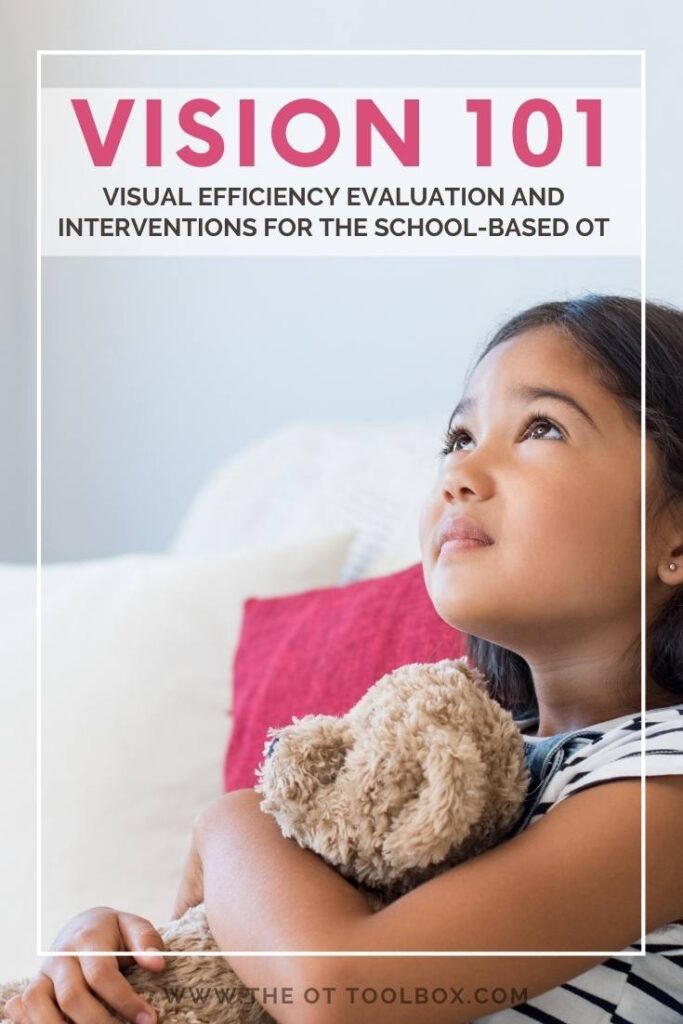
Vision 101
Vision problems are very common in children that receive occupational therapy.
If you are looking for information on visual processing and vision in kids, then you are in the right place. Check out the various resources and tools available here on The OT Toolbox:
Free Visual Perception Packet– Print and go! These free visual perceptual skills worksheets cover a variety of topics and themes. Work on visual closure, visual scanning, visual discrimination, and more.
Vison Screening Packet– Use this vision screening packet to screen for vision issues that impact occupational performance and education in learning and school tasks.
Vision Information– Check out all of the vision blog posts here on the website.
Vision Activities– Let’s break down vision! These vision activities address specific skills in fun and creative ways. You’ll find information on vision definitions and activities to work on each aspect of visual processing.
Free Visual Processing Lab– This free email course covers tons of information on visual processing and breaks down this massive topic into visual motor integration, visual perception, and visual efficiency…and then explains each aspect.
Visual Processing Checklist– This printable checklist is perfect for screening visual needs in the school setting.
Vision’s Impact on Learning– The fact is that children with vision issues are impacted in their learning. Here’s what you need to know.
Visual Motor Skills– Let’s face it. Much of what we do on a daily basis involves visual motor integration. Here is all of the info and resources to address visual motor skills in kids.
Visual Processing Bundle– This resource is a must-have for all things vision. It includes 17 products that you can use in therapy sessions to work on vision needs impacting occupational performance.
Want to gain continuing education credits while you learn how to apply vision interventions into your school-based practice? Vision 101 is your resource!
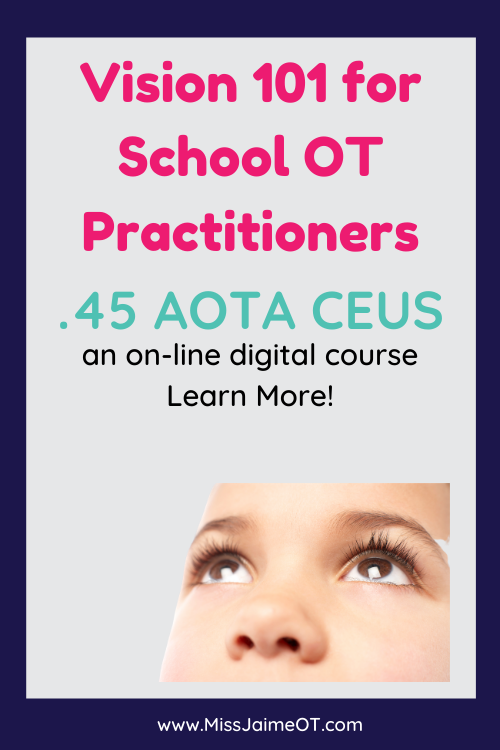
Vision 101 Course for School-Based OTs
Vision 101 is a course created by my friend Jaime at Miss. Jaime OT. She’s created this AOTA-approved course as a tool to help you improve your skills as a school-based occupational therapist. In the course, you can learn how to detect, screen for, and treat the visual difficulties that impact students’ learning
Vision 101 for School-based Occupational Therapy Practitioners is a tool to help you understand how vision deficits impact a child’s ability to learn and participate in school work.
The course offers resources on how to help students learn and participate in school tasks.
Included in the Vision course is information on:
- Vision and the school-based therapist
- Recognizing possible visual impediments to learning
- Understanding visual diagnoses
- Assessing and documenting eye movements
- Visual characteristics of common pediatric diagnosis
- Treatment Ideas
- Vision and telehealth
Vision in the school setting
Check out the blog comments below for common questions about vision in the school setting.

Colleen Beck, OTR/L has been an occupational therapist since 2000, working in school-based, hand therapy, outpatient peds, EI, and SNF. Colleen created The OT Toolbox to inspire therapists, teachers, and parents with easy and fun tools to help children thrive. Read her story about going from an OT making $3/hour (after paying for kids’ childcare) to a full-time OT resource creator for millions of readers. Want to collaborate? Send an email to contact@theottoolbox.com.

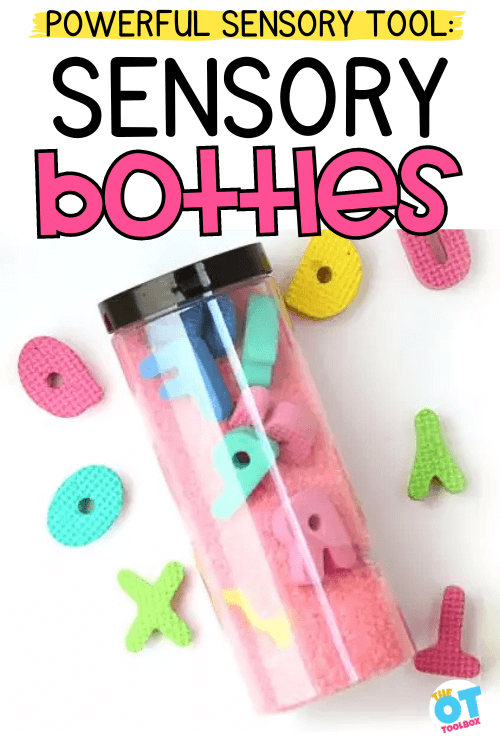
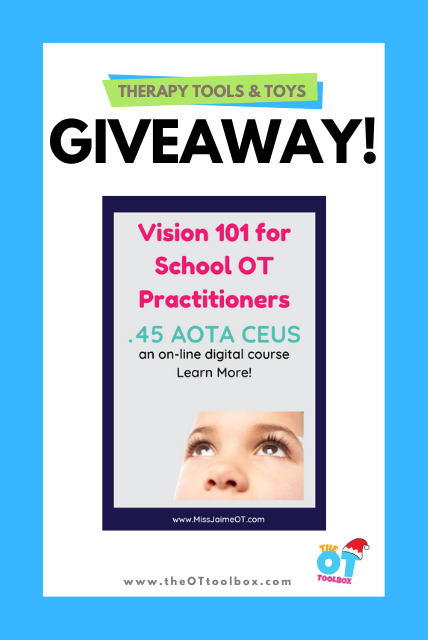
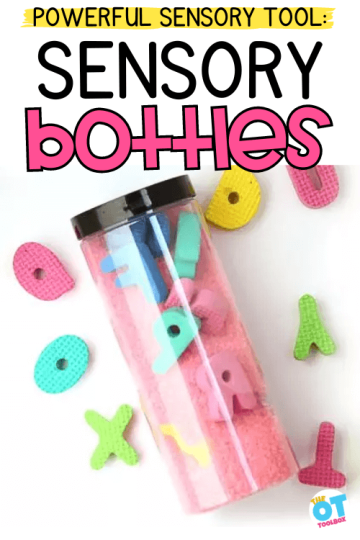
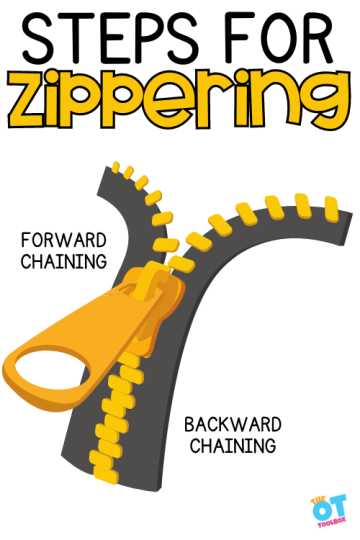
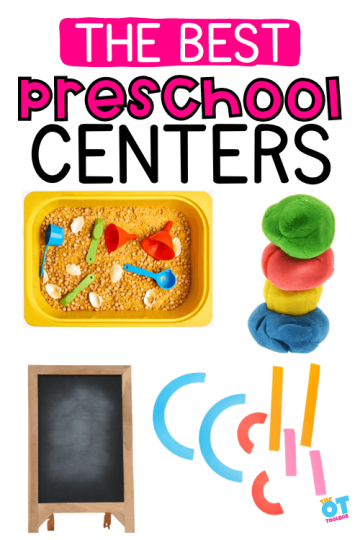
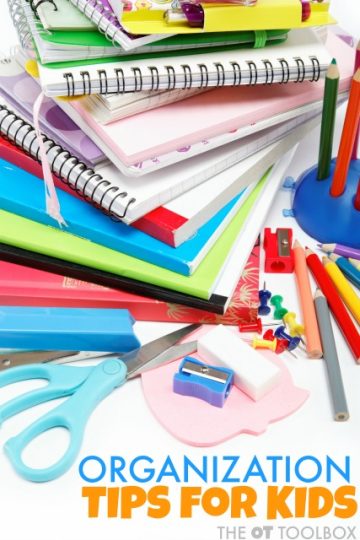
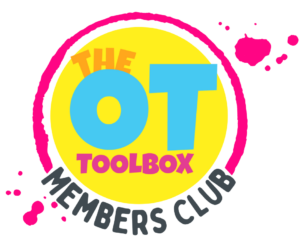
226 thoughts on “Vision 101 Course”
I love expanding my knowledge as a COTA. I treat lots of kids in the school system with visual issues. This would be awesome to learn more to help me better treat them!
I would love to learn more about vision! I would really like to know more about assessing eye movements.
I would love to know more about evaluating vision and how this impacts occupation!
I am graduating this month with my MSc in OT and I plan to work in the school system. Prior to studying occupational therapy I was a teacher and I have realized how much I can help students that I previously taught. I would love to learn more about children’s vision through this course to begin my continuing education!
Vision is such an important skill in school-based settings and affects all areas of occupation! I would love to build upon my current knowledge of vision and how to address it in occupational therapy.
I believe vision is very misunderstood in my school and would love to build a better program to help the students as well as help the teachers understand how it impacts learning.
What can I do to strengthen visual motor when I have so many other goals for the student? How do I know if the VM is the most important thing to work on?
Thanks for opportunity. I would love to increase my knowledge of vision in the school system and how it impacts education. I would love to learn more interventions for gaining visual attention in low-incidence students to improve ADL’s and functional skills.
I would love to learn more about evaluating vision issues in the school setting and how to provide the service those kids need in school!
My school is virtual this school year and I work with several students with low vision via teletherapy. What are strategies and supportive assistive technology tools that have been effective for other therapists?
What are some guidelines for working with children with low vision and not visual perceptual problems.
How do you work on saccades in a fun way?
How to evaluate visual perceptual skills with kids who have difficulty following simple commands?
Vision is such a huge component to fine motor skills and written output. Would love to learn more!
How do you distinguish between visual motor concerns and motor planning concerns with students who demonstrate behaviors and intellectual disabilities making standardized testing an ineffective way to judge visual motor skills?
I would love to know how vision impedes the ability to produce written work? I currently have so many students who struggle with this!
I would love to know more about testing for vision deficits as well as the impact on dyslexia.
Vision has always been an area that interests me! Trying to explain to parents difference in acuity and perception is always fun. The most interesting case I had was a pre-teen with a TBI who could only write diagonally across his papers, but with time he was able to improve it?. Still makes me wonder how the brain does that.
This would be so helpful! I have teachers who are reaching out for me to screen students for RTI and I do not have a screener. My question is with students who have dyslexia, which area of vision is most important to focus on?
What evidence based vision interventions can I implement using telehealth?
What are some engaging vision interventions to incorporate into sessions?
As a new graduate and OTR/L in the school system I know I will have a lot of questions regarding vision. This would be a great educational tool!
What resources are available to educate families about vision and how to support their Child at home to carryover the interventions that are occurring at school/teletherapy?
I usually screen for vision but have a hard time addressing it in the schools! I would love to see more treatment ideas!
I struggle with knowing my roll with vision in school and when a specialist is more appropriate. Would love this course!
I would like to learn more about treating and accommodating for visual deficits in a school setting.
This is an area that I would love some extra training.
I have so many students with visual challenges and their families do not have the resources to address their needs outside of school. I would love to become competent in addressing these needs in school where all kids have access!
I always wanna learn more when it comes to vision- i feel like it’s over looked way too much in school settings. If really like better ways to collect data on tracking and convergence.
Hi. Im a mom of an Autistic boy. Its been year of struggling with learnin, writing and reading. And him been non verbal its been difficult to know his opinion. Its becoming a necessity for him to communicate.
What estrategies, should I use to discriminate in a screen/paper with more than 2 objects?
Love to learn more about vision screenings and what I can address in school setting or when to refer out. Love to learn what activities can be embedded into daily school routine to help progress skills.
How can we assess some behaviors like I attention may be due to visual deficits?
I’d love to know more about assessments.
I’d love the opportunity to take this course. I’ve recently evaluated an influx of kids with poor ocular motor skills, but my knowledge of treating and improving the skills can use some refreshing. Thank you for offering this giveaway. My patients would greatly benefit!
Hi. I love your website. I am just starting a school based job after working with adults most of my professional life and would love to win this course. I think it would greatly help me treat the children and improve their outcomes.
I am very interested in learning about assessment, treatment strategies, and accommodations for visual deficits in the school setting.
I have seen an increase in vision issues in my field and would love to expand my knowledge in vision to help my clients the best I can ?
Vision isinvolved with every aspect of education… to have a much information as possible to help my young learners would be invaluable!
Vision impacts so many areas for a student’s success. I’d love to find new ways to address these areas. Thank you for the opportunity !
This seems like such a great course! I would love to take it and apply it to my kiddos in therapy!
Vision is a passion of mine and I can always use another tool to add to my toolbox!
I have been expanding my education on vision and vision rehab in border to more effectively evaluate, refer and treat vision deficits as well as educate teachers and co-workers. This may be a great tool to continue to expand that learning curve. Thank you
How do we assess for possible visual complications?
Always looking for more learning opportunities.
What are the best ways to address visual issues within the classroom?
What are some of the best accommodations for visual deficits?
What are the best classroom activities to address far point copying?
How can I tell if my students handwriting concerns are mainly fine motor or visual perceptual or both? I could really benefit from this course. We are outsources most of the vision treatment to vision specialists because the needs are so complex. This would help me be better able to serve my students at school!
I am wondering about activities to help with reversals, especially when copying.
What are the best ways to address visual scanning and visual tracking deficits in online therapy sessions?
What is the best quick screen for vision? How does vision impact postural control? More about the hierarchy of vision skills
I currently have a student who I realized has a convergence disorder and amblyopia. She is now formally diagnosed and has glasses. Can anyone explain the impact of glasses on a variety of vision issues (i.e., nystagmus, amblyopia, etc.)
I currently have a student who I realized has a convergence disorder and amblyopia. She is now formally diagnosed and has glasses. Can anyone explain the impact of glasses on a variety of vision issues (i.e., nystagmus, amblyopia, etc.)
I have seen over the years as a pediatric OT so many kids vision problems go undetected and instead they are labeled as ‘learning disabled.’ Often the parents I work with don’t have the ability or resources to get their children’s vision properly evaluated and treated so I would really love to be able to help them more with this! I would love to take this course to help with that and now with teletherapy I ‘see’ more vision issues than ever.
How do I convince teachers that vision issues could be the problem?
Vision is so important and often overlooked by parents. Are there any great resources to share with parents to help them understand the importance of a vision exam and one that includes more than 20/20 vision?
I know vision skills are related so much to being successful within the classroom, but how do you identify the individual VP skills that need to be worked on?
What is the best way to communicate the difference between visual processing deficits versus visual acuity. If the eye doctor says they have adequate vision then it’s difficult for families to understand the issue.
How do I make visual perceptual and receptual skills into concrete goals connected towards school concerns? How do you assess improvement if our chosen activities used does not always involve direct practice of an occupational difficulty in school or home (therefore difficult to explain to other stakeholders), but a bottom up skill like visual perceptual skills?
This is my top pick. I work with so many students who present with visual efficiency skills, which I know impacts everything they present struggles with. This course would provide me with tools and strategies to better assess this area and provide recommendations.
I would like to know parameters for what OT’s in the school system can cover, is it activities that are like what vision therapy would be? What role do TVI’s play vs. OT’s?
This looks like a great course! I am very interested in learning more about how to detect signs of various visual skill deficits and how to screen for these deficits.
I have been looking to expand my knowledge on vision so I can better provide services for my students.
I know that this is an area where I have a lot to learn. This would be a great opportunity!
I would love to attend! More info the better!!
I think vision is the most overlooked sensory system when I get referrals for Fine Motor skills and Handwriting. I would appreciate the opportunity to build my own level of competence in Vision Therapy to speak to and do more to let my parents and teachers know the impact. I think too many kids are falling through the cracks when it comes to vision deficit awareness!
What are some of the evidence-based vision interventions that I can use with students who have visual impairments?
I think this topic is just as hard to explain to parents, co-workers, staff members as sensory processing. I would love to take the course to enhance and grow my knowledge on the topic as well as learn alternative ways of explaining the content.
I would love to learn more about fine motor deficits vs visual difficulties effects on handwriting.
I would love to learn more about vision, as I have some students who will only scan in certain settings or for certain activities. In my classroom, I try to incorporate as many OT needs as possible within my instruction.
I worked in a school for students with language based learning challenges. Vision plays such an important skill in school-based settings and impacts all areas of participation and occupation! I feel that it is often overlooked due to the reading and learning challenges that our students have. Often times, there seems to be a complex interaction between the language based learning disability, deficits in foundational executive functioning skills, and underlying vision challenges. I would love to build upon my current knowledge of vision and learn more ways to address vision challenges in my therapy.
What’s the best way to evaluate a student’s visual deficits in a classroom setting to determine whether the issue is visual acuity or visual perceptual? Addressing visual deficits has always been an interest of mine so I would love to learn more in general.
This is an awesome opportunity to have a better understanding of
how vision impacts occupational performance and how to approach deficits!
Would love to learn more about vision related to motor planning and body awareness and how it can affect gross motor movements. Also related to tracking and handwriting.
Vision deficits greatly impact learning.
I have been interested in vision and have addressed it in OT with many students as well as bringing myself and two of my children receiving vision therapy.
I always find it fascinating!
I have not so far incorporated it in teletherapy though. Additionally, it super difficult for me to assess in an ongoing basis during teletherapy. I have some students I have never met in person that I am SURE need this area addressed even though it is not currently on their IEP.
However, due to how overwhelmed I am with doing virtual and in-person therapy as well as the ongoing extra layer of stress from having second level exposures and life with an aging Mom and new grandchild who all need help I have not addressed learning about this vision piece in teletherapy (except for visual perception boom cards)
If you feel this book will help… This is my entry!
Thank you for all your help with slide decks as we strive to make therapy engaging fun and targeted to our kiddos needs:)
Maryerin Agard
mjagard3@gmail.com
I love this! I am one of a few in my district that assess functional vision and make referrals out. Are there official forms out there that we can use to assess and then send to developmental optometrist for referral?
Vision has been the hardest skill for me to learn about as a new grad OT. Almost all my students have visuomotor difficulties, but I struggle to know how to truly strengthen these skills. I also want to know how to know with handwriting if it is a vision problem or a fine motor problem and how to figure that out? I also would like to know what I can do if a student crosses midline good with motor movements, but not eye movement? I would love to win this class to learn about all of these!
I have so many students who struggle with this! I would love to be able to learn more so that I could be more beneficial in this area. Having research based evidence to support your services is also always a good thing!
I would love to just increase my knowledge on visual deficits because “poor handwriting” is SO MUCH MORE than just fine motor issues.
Vision is an important skill needed for success in schools. It may be a underlying issue causing difficulties in basic expected school functions/skills
How would I determine vision deficits vs fine motor deficits?
I would love to learn more about vision deficits since it is a skill that affects overall learning and function in school and is not addressed a lot beyond basic vision screening. I would like to learn more on how it correlates with fine motor skills and handwriting.
I need all this info. Our district does not offer vision therapy/intervention supports for students that don’t have significant diagnosed impairments. But I know so many students I see for handwriting have some sort of visual inefficiency.
I would love to learn more about vision as I am seeing an increase in students with vision concerns.
Vision so often over looked. What’s your best tricks for getting teachers and parents on board?
I would love more about implementing more visual treatments into my caseload.
I would love to know more about a quick screener and a more in depth assessment, as well as, easy to implement techniques.
Vision is integral part of therapy. I have had an interest in gaining knowledge in this area and have seen therapists using the knowledge they have learned and want to learn all I can!!
I would love to learn more ways to work on visual perceptual and visual motor skills aside from pencil paper tasks in the school setting! This is in area I would like to expand my knowledge in.
I would love to expand my knowledge for vision assessment and treatment to sue with my clients.
What interventions can be implemented in the school setting to help improve a student’s visual scanning abilities?
I work in a school setting with kids in their reception year. I feel it is very important to catch vision problems early. I would love to learn more about assessment.
How can I assess and treat vision tracking via telehealth?
I struggle with accurately assessing vision (grossly) for helping to better understand visual motor and visual perceptual challenges in the classroom. This course seems like it would be so helpful for better understanding visual impairments, what to look for and how to incorporate strategies into treatment sessions.
I am an OT and would love to learn more about vision assessment and interventions especially knowing that alot of my student have difficulty with fluid reading due to poor visual scanning skills.
I feel like I struggle the most with severe visual impairments when working with students and could use this course!
I would love to hear more about vision accommodations in the classroom!
I would LOVE this! I think vision is at the heart of many functional deficits seen in and outside of the classroom. How do you differentiate between difficulty with attention vs a true visual deficit?
I think vision is the one thing I know the least about as a recent graduate and new school COTA and would absolutely love to learn more about it and what I can do to help students!
I would love to learn more about vision! I would really like to know more about assessing eye movements.
I’d love to learn more about underlying vision issues that impact my students. I love Miss Jamie, so I know this course will contain valuable and practical information to help me as a therapist.
This would really help me to assess visual skills and how it impacts function in the school setting.
What are some good suggestions to give to teachers and/or parents to continue working on development of these visual skills outside of occupational therapy treatments.
Hi! I am a recent OTR graduate working at an elementary school and in EI. I always wonder what signs may indicate the need to screen/evaluate visual skills? Or if these should always be part of the evaluation?
I would love to know more about vision and its impact on a student’s access to education.
I would love to better understand how to identify visual deficits and strategies to address them that can be easily carried over.
Such an important topic in schools! I would love to learn more about the topic to better treat my students.
I would love to gain more information and tools to help me articulate the importance of vision in learning. There are so many aspects that we dont normally think about and I feel that often it is just assumed if a student can see the board or the paper in front of them that vision isn’t an issue!
what are strategies for screen and assessing visual skills?
I would love to learn more about how to incorporate more in daily sessions
To determine when it’s vision or visual perception better
This would be amazing. Over 50% of my caseload have vision impairment and I love working with my TVI friends to be learn more!
what treatment activities for difficulties with saccades and/or visual perceptual deficiencies can help improve children’s reading skills?
I need to better understand vision and visual perception to better advocate for my son. Is it ever too late to address perception issues?
It’s so important to use in school-based. And as an OT, it’s definitely an amazing opportunity to enhance my knowledge! Thank you!
It would be very helpful as a new school provider to learn through this course. My question is how can we carry over visual based skills we are working on to reading and math in the school setting?
What percentage of elementary school children have vision issues other than acuity? Why is it such a misunderstood area?
I would love to take this course to help my students with vision challenges! Thank you.
I would love to take this course. Since becoming by trained in Astronaut protocol, I have looked for more courses about vision.
We do basic ocular motor assessment with our kids, but I would Learn to love more about the connections and importance of addressing deficits related to vision.
I am working with so many kids in my district who I have to adapt items for remote learning OT. Would love to be more informed on this subject.
What strategies do you feel are most successful with being implemented in school setting versus a clinic setting?
I would love to learn more about treating kiddos with visual deficits both professionally, for working with my 3-5 year old early childhood students and to learn more strategies for my son
I would like to know how if vision and visual processing is directly related to dyslexia?
I would love more practical tips for the classroom setting.
I want to learn strategies to integrate visual activities into classroom settings.
Vision is so important to learning as well as moving through space and understanding the world around us. I am seeing so many more students with visual processing deficits and would like to learn more about how to provide support and help to these children. I believe with the right mix of treatment it would make a world of difference to these kiddos and I really want to help them!
Thanks for this opportunity!
I want to become better equipped to early on discern and be alerted to possible visual impediments that would negatively effect all aspects of learning – both of written and visual stimuli/input/output and which also could negatively effect the mastering of small and large gross motor movements.
This would be so helpful! I tend to often overlook vision within our scope of practice. I have never taken a vision course in my 5 years of practice so this would be a great opportunity to learn more!
How to assess vision in the school setting
Welcome any opportunity to expand my knowledge base!
This is an area that I would love to learn more about. I could use this to improve my skills for my preschool and elementary students.
I am a school-based OT and I would love to learn more about vision. This is always an area which I find tricky to target. My question is if the student has more than one visual issue, what do I target first, and also to what extent does improvement in visual skills impact handwriting? I have heard mixed information and would love some clarification.
How different visual perceptual skills affect educational growth.
I feel reasonably confident in assessment but would love to know more about practical ways to address vision deficits in a school setting, particularly when there isn’t parent carryover at home.
How do we assess then provide easy to pass on intervention that can help our kiddos, especially when vision therapy is not an options? I see these kids struggle to read and focus all the time, and have only recently come to realize that we can identify part of the problem and offer an olive branch! Soooo important! … Would love this course!
I work with many kids in my school who have visual deficits. The school is in hybrid model this year so these activities will all be helpful with treatment activities and ideas.
I would love to learn more about vision and how to identify vision issues within a school setting. I’m particularly interested in visual perception.
I would love to learn more about how to treat and assess vision. Are there any assessments we have already in OT that can help in this process? I also work with children who have cortical visual impairment and would love to know if this course has any information on this. I’ve been wanting to take this course for so long but haven’t been able to yet.
I would love to learn more about the visual sensory system and how it effects function in a child occupations
How to support visual development in individuals who are non-verbal and have multiple disabilities.
I have registered for the course but would love to win it. I am in private practice seeing children in schools so have to fund everything myself. I love extending my knowledge base thanks for you great website
How can you tell if it a visual processing issue vs visual motor issue? H
What have you found to be the most effective interventions provided through school and how do you encourage/get follow through at home?
This is such a great opportunity I love making myself become a better OT to make a bigger impact in the lives of the kids that I work with
Hello I serve a rural community and see kiddos for outpatient. I find so many kids with visual perception issues affecting school performance!! I need a quick screener (using the MVPT) but need something for quick identification. I need ideas for hands on activities not just pen and paper or computer based intervention. I want to marry the perception with motor learning!! Thanks
Would love to learn more on assessment and strategies for school-based OTS.
Vision is a huge part of learning to read and write. I would love to have information/activities in my “OT toolbox” to provide to younger students and their parents who struggle with reading and writing.
This is a great prize. I am a school based OT and doing a lot of work on technology access. Vision is such a huge part of that and while I collaborate with vision consultants it’s not always possible. I would love to expand my know so that I can better support my students. Thanks for your consideration!
I would love to know more about vision because it is so foundational to many school based skills. What is the most common functional deficit you see in children with undetected vision issues?
I would like to know at which point is it acceptable to refer a child to a vision specialist? How long should a therapist treat for visual deficits before considering the referral?
Vision has always been one of my passions that I would love to grasp a better understanding on the dynamics of how much it affects students with their learning. Vision is such a huge part of a child’s ability to engage in their learning environment and many times will go unnoticed. Learning about how we can better facilitate this need will be treasured.
I would like to learn more about visual processing as it has a huge impact on occupational performance.
Great knowledge to have while working in the school district
I am always looking for functional ways to improve vision skills. Plus, how to share vision information with others in a non-medical way.
What are some ways to address functional vision skills through telehealth? How do these ways differ from in person services? What advice do you have to address vision in both of these settings?
I work in a school setting and previously worked with a student who was diagnosed with Duane Syndrome. I would like to know if there are any OT vision strategies I could have used to help her improve her functioning within the school setting.
I have a lot of kids that are learning about spacing. I know visual spatial helps learn about spacing. What are some good activities?
Since many public schools are using a virtual model for therapy, I would like to learn of more tools to address vision therapy virtually for students in 4th-6th grade.
Vision plays an important role not just in handwriting but also in all aspect of learning such as ability to participate in gross motor play.
I am a school therapist and would love to further my knowledge of vision!
I previously worked with a little guy who had significant visual concerns and the pediatric ophthalmologist that he saw had some great ideas for carry over into treatment. I would love to learn more with the AOTA course!
I would love to know more about assessment and treatment of vision issues! We have several students with CVI, some with nystagmus, and others with visual perceptual delays that are impacting their education!
I would love to learn how to address visual deficits to improve a student’s functional performance.
I am always looking to be better in my practice as an OT
What are the best interventions for at risk students who aren’t officially special ed students? I want to help them all but I just don’t have enough time in the day.
I work in the school setting and get so many referrals because a student scored low on their Psychoeducational testing. What is a quick screener I can use to determine if further evaluation is needed? Oftentimes the student’s visual processing skills are adequate or only slightly delayed but he/she is still having difficulty. Also what are some good resources for visual processing/visual motor skills through teletherapy?
A common problem among school-age students. Would love to help them overcome difficulties.
I would love to take this course because I have several students on my caseload who are diagnosed with low vision and receive vision therapy in addition to OT. My question is, what are the boundaries between the VT scope of practice and the OT scope?
Is there a screening/evaluative tool that can be used by professionals outside of the vision field that can help identify visual processing issues beyond the vision screening that most students pass?
This course would be extremely beneficial to my career! I am a new grad working in the school setting for a small school district. I am the only OT, so my services are extremely important, but this also poses a challenge since I am new and have limited knowledge. I am a big fan. 🙂
I think that understanding more about the impact of vision and eye movements on school success, and about how to develop improvements in these areas would be incredibly helpful.
I would love to take this course. I am an OT working in the schools and I have noticed quite an increase in students with visual processing weaknesses that impact their learning. I am always looking for new ways to evaluate and treat this area. Thanks so much!
As an OT in the public school setting, this course would be very helpful for me & the other OTs. I see lots of kids with visual acuity issues or other visual diagnoses in addition to the visual perception issues I’m addressing. This course looks like it would provide info to make me a more effective therapist.
How do I write a measurable goal to address vision concerns in the school setting?
What are some informal assessments to use in teletherapy?
There are many children who are so bright but struggle in their learning. I would like to understand how to assess their visual processing and perception, so as to provide more effective therapy.
What is School OTs role in oculomotor skills and interventions?
What are some strategies to work with children who are very easily visually distracted?
Would love to continue my education with vision therapy.
I would love to know how other OTs assess visual skills in the school setting.
Does this course provide information on classroom strategies?
I think visual skills is probably one of areas I feel I need to continue to grow in. At my own annual visual exams I usually have a ton of questions for my eye doctor and luckily he’s enthusiastic about educating all his patients.
I am always looking for more tools for my assessment kit. Adding this would be so helpful for more school-based practice.
I would definitely be able to put this course and the information provided to good use with my k-2nd grade students! This year especially, I have been frequently approached regarding visual motor and perceptual functioning/skills and treatment ideas for the classroom and home. This is an area that I really want to gather more updated information on and it would be great to see how other OTs assess and treat.
Interested in learning more about solutions for accommodation problems!
I’m always searching for information and new ideas, techniques, etc to help my students. I have a new student who is struggling with visual perceptual and visual motor tasks following brain surgery and chemotherapy. New ideas, solutions, etc would be fabulous!
I’m always looking for more information on how to work with students with visual impairments and behaviors who need visuals and/or physical manipulatives but also need their vision needs taken into consideration.
I believe that vision or ocular motor skills are the reason why adminstrators feel we dont do as well as we could on state tests therefore also daily functioning. I’d love to do more about it!
Always looking for resources that will help me with identifying the specific problem areas impeding academic performance
I definitely need to learn more ways to assist with vision. I will check this course out.
I would absolutely love this course. I work with so many children that have vision issues that impact their ability to participate in school tasks. What are the interventions that would be appropriate for a student with visual perceptual and visual motor deficits? What are some good assessments or ways to assess visual issues? How can OTs be at the forefront of vision therapy in the schools?
I want to learn practical strategies to help students with vision problems for home and at school. Being able to tease out the students difficulties and then come up with appropriate strategies to help address the issues are my goals for this course.
I have a few clients that we suspect have dyslexia and dysgraphia however I believe it is partially visual perception as well. This course will give me the tools to help them.
I use the DTVP and have some concerns about accuracy of the testing. The visual perceptual component can be challenging, especially for ADHD students. I’d like to learn alternative testing for visual perception. Do other therapist have the same concerns?
I use the VMI but I feel like it is very basic. I would love more information to look deeper!
What vision assessments and interventions can be used in a school setting?
I’d really like to learn more about evaluating children in the school setting who may have visual field deficits due to genetic syndromes or anomalies.
I would like to get better at assessing visual motor integration and really understanding the impact it has on a child’s performance in school! I have so many kids that have difficulty with copying and letter sizing and I know that there could be a problem with the visual motor integration, but need more tools to really understand and help treat the issue.
Thank you for all you have put up on your website! It’s been a great resource!
I happen to special in visual processing and how it impacts students academically and in the classroom. I would love to learn more!
Oh how I wish I knew more about functional vision and have more tools in my OT box for treatment.
Vision is so important in most things we do, and I feel like I usually forget to think of it during evaluations. My question is: What are some meaningful and functional ways to assess vision during an evaluation?
I am very interested in the impact of early vision development on success in education.
How exactly does poor visual skills impact/impede learning and how can we assess this area in school-based practice?
Vision is such an overlooked area yet so many students with special needs have vision deficits. What are some practical activities and assessments that can be done to identify and work on these deficits?
I think this would be a great resource for all of our students, especially those with visual deficits. I think this program would offer a lot more than what is expressed here. What a great tool!
I would love to do this course! I am curious about assessing different aspects of vision and about what accommodations can be provided in school settings.
I believe this course will provide me with more tools to help the students I work with JE more successful in their education.
What are some good IEP accommodations for students with visual spatial issues?
I’m an OT and parent of a child who has been identified has potentially having some visual processing difficulties. My question, how can I better support my daughter abd I think this course would help me answer this question.
I’d love to learn about helping towards visual goals through teletherapy
I do a basic screening for vision with my kids I see in the schools, but I would love to know more about what I could be doing to evaluate and treat them.
Oh man so many questions! What are some adaptions/modifations can be made for a student with severe nystamus to be successful in the classroom. When a student is unable to properly space letters or correctly place them on the line what are some activites to help increase awareness and/or aid in increasing legibility?
Working as a school based OT, I have seen a lot of students that are struggling with reading and/or writing due to poor visual support. I would like to provide needed support to my students. I would love to learn more on screening, assessment and strategies for both home and school.
I would love to learn more about visual assessment and treatment for children.
Would love to know how to accurately assess vision in my school students so I can identify and address those skills they need to be successful with their school work.
I would love to have this course to expand my knowledge of visual problems in school aged children! I am a first year School OT and looking for any resources to add to my toolbox!
When to treat myself and when to recommend a developmental optometrist and/or VT? I also want to learn more a out CVI!
So many great questions by others…..thank you everyone!
As an OT, when should I recommend a more in depth visual assessment be done by a developmental optometrist and how do you differentiate between difficulty with attention versus an actual visual deficit?
What are some strategies for evaluating vision? I would also love to learn strategies to implement during sessions!
I am a new OT looking to get into school based and this would be a great tool as I only have experience with visual assessment perform with adults. How do you perform visual assessments when the child has difficulty follow or understanding the commands? Which aspect of vision would you work on 1st?
Wow i sure need it in my new kindergarten
Wow i sure need it in my new kindergarten
Vision is so important to every thing we do. since starting to use telehealth this year and virtual therapy sessions vision has become even more important. I would like some more interesting activities to use in my sessions.
I would love to learn more about vision and visual processing.
I have quite a few kiddos with CVI. This would be a great help
Comments are closed.